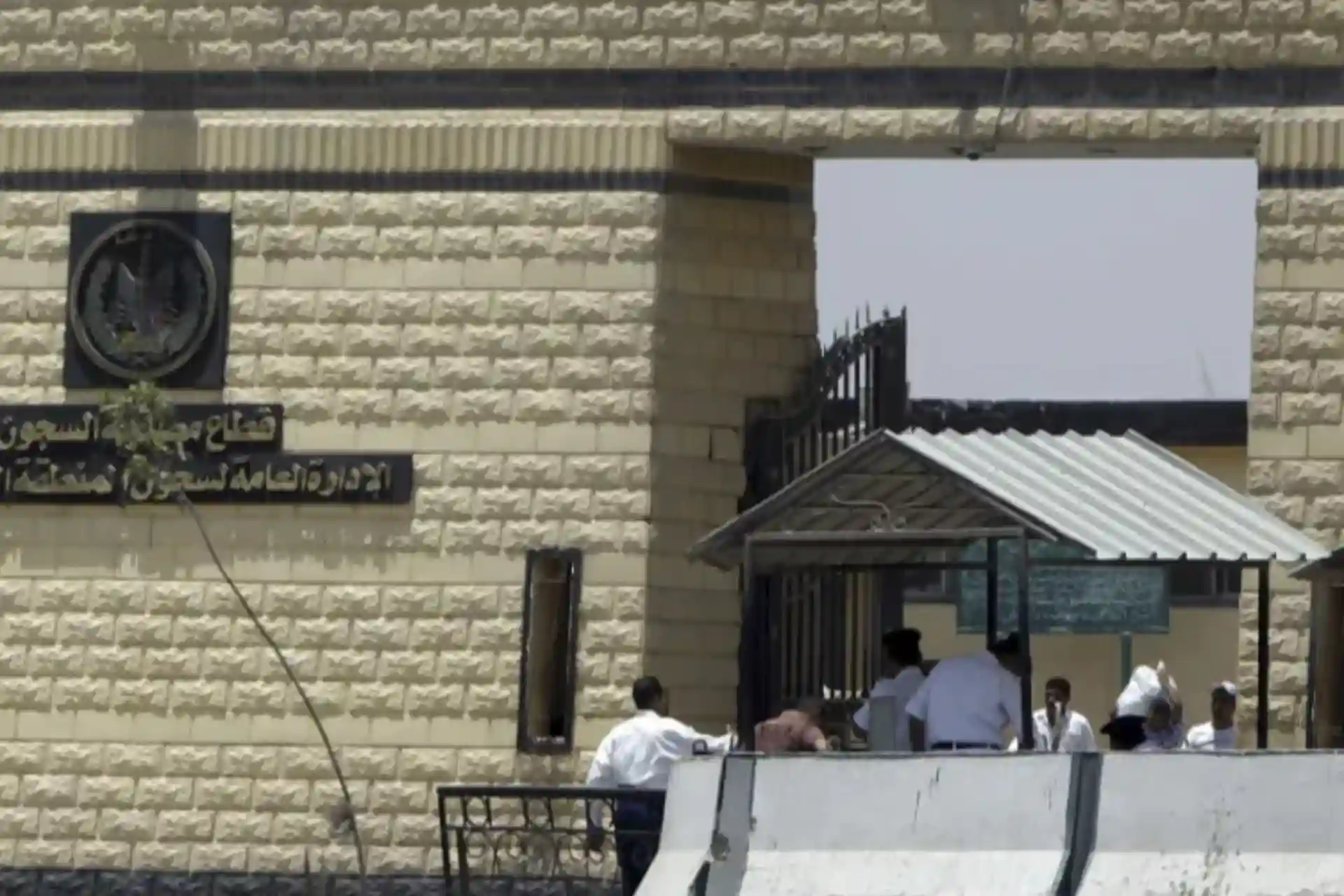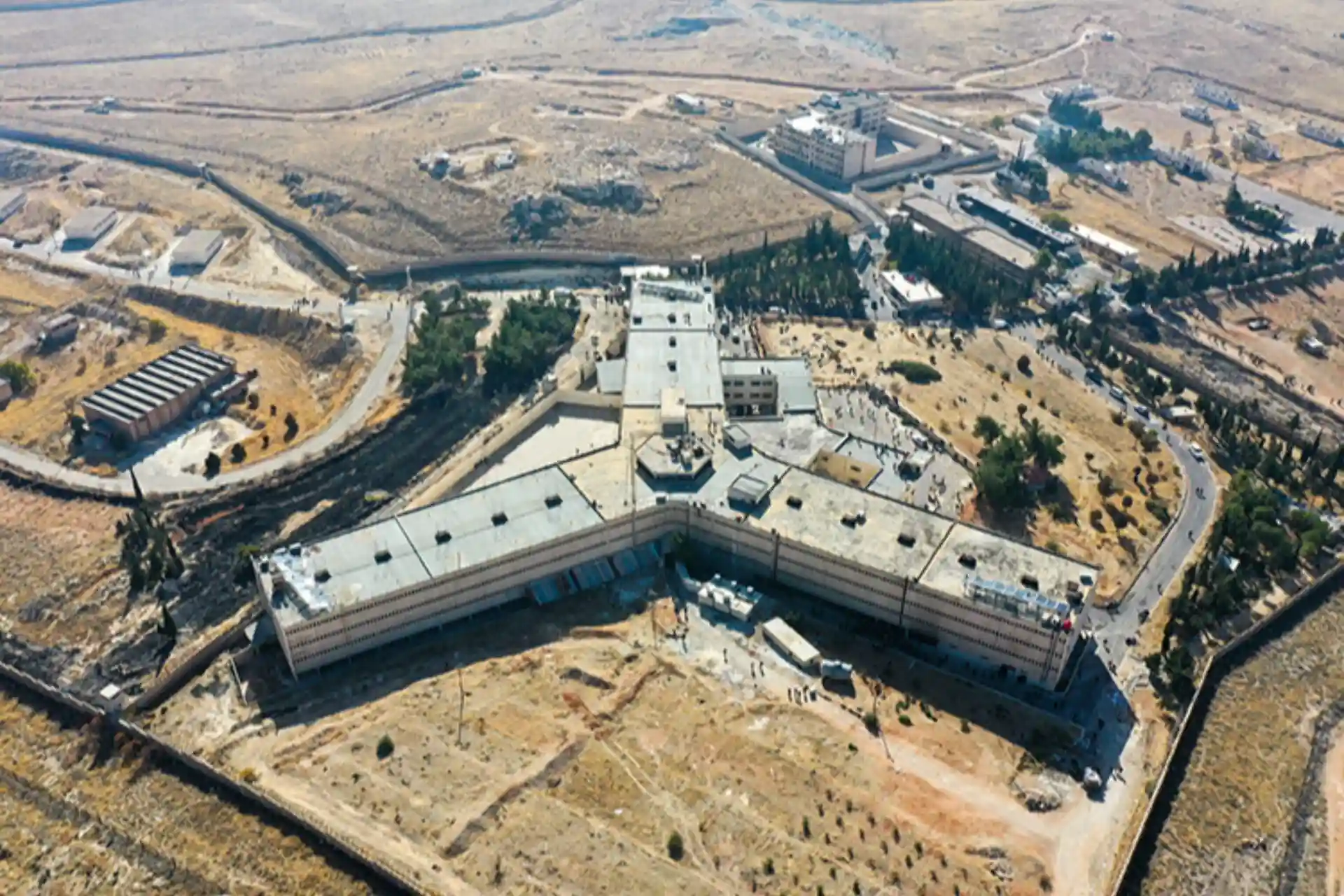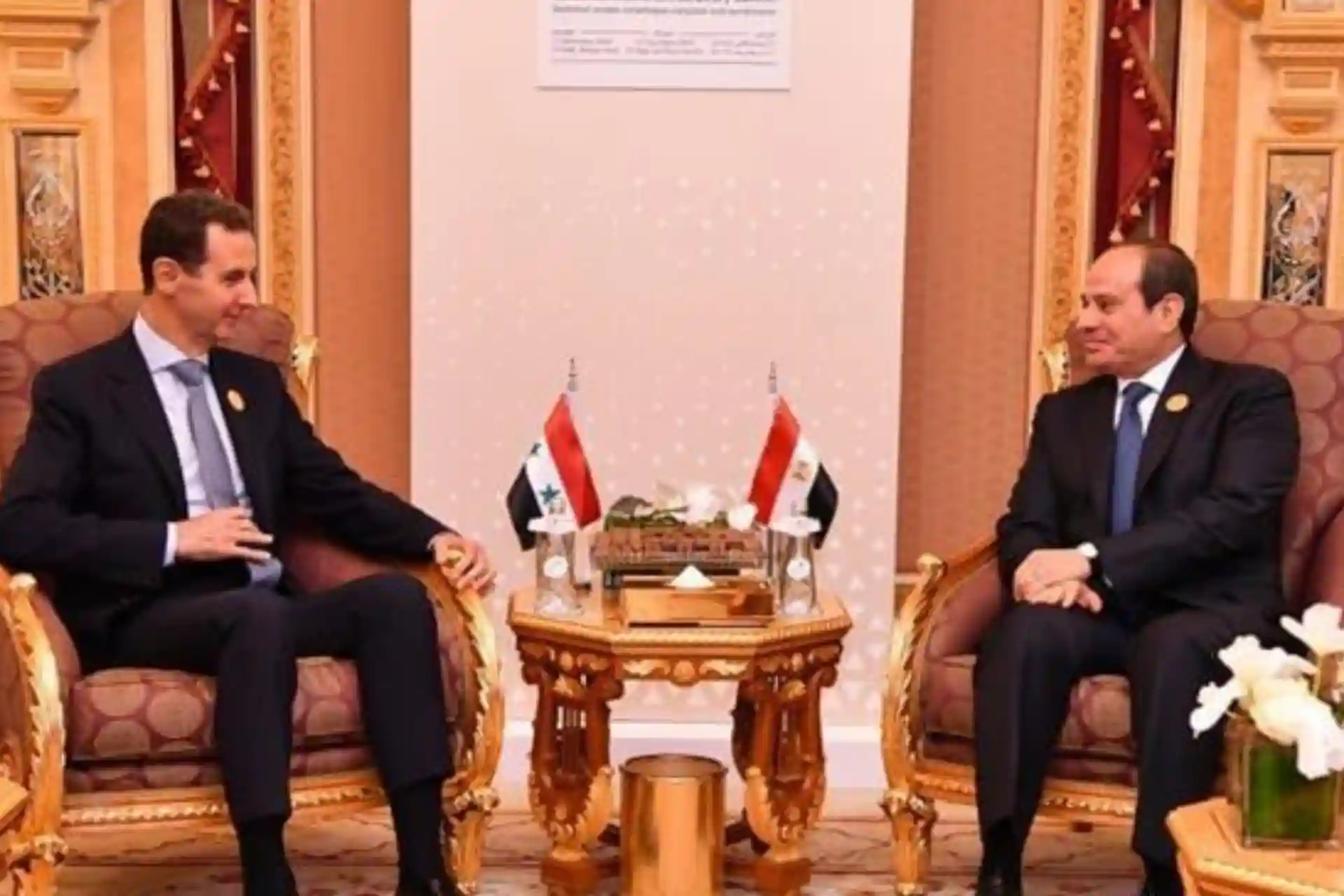Does Egypt have its own "Sednaya"?
The truth about Sednaya prison, also known as the "human slaughterhouse" in Syria, reflects the fears that haunt the families of those imprisoned by the Sisi regime in Egypt, and raises questions: Are there underground prisons in Egypt? Where are the victims of forced disappearances? How many were tortured or subjected to medical neglect? Why doesn't Egypt open its prisons to international scrutiny?
The horrific Sednaya prison in Syria has shed light on the reality of Egyptian prisons, the fate of those forgotten behind bars, and the plight of victims tortured and killed under the rule of Egypt's current president, Abdel Fattah al-Sisi.
Thousands of Egyptian families fear a repeat of the Sednaya tragedy, as political opponents of el-Sisi, including children, women, the sick and the elderly, have been imprisoned since the July 2013 coup. They were imprisoned after trials that human rights groups have condemned as failing to meet international standards of fairness and integrity .
"We don't want to end up like Syria , " said one Egyptian human rights activist. It echoes the fears that haunt the families of those detained, and raises questions: Are there underground prisons in Egypt? Where are the victims of enforced disappearances ? How many were tortured or subjected to medical neglect? Why doesn't Egypt open its prisons to international scrutiny? Does Egypt have its own Sednaya prison? Do Egyptian prisons meet international human rights standards?
Cemeteries of the living
The London-based NGO Human Rights Egypt has drawn a map of the country's notorious prisons, including Badr, Al-Abadiya, Al-Azouli, Burj Al-Arab, Abu Zaabal, Wadi Al-Natrun, Assiut and New Valley, under the title "Egypt's Sednaya... Cemeteries of the Living." It called on the government in Cairo to release political prisoners in Egypt and to stop the abuses committed against opponents of the regime in these prisons.
There are 78 main prisons across Egypt, in addition to hundreds of detention centers and secret cells belonging to the National Security Agency (formerly State Security, the internal intelligence agency). These cells may be located within police stations or within the agency's headquarters in Egyptian provinces.
One witness said he worked on the construction of an underground prison in Sharqia province (Nile Delta), but declined to provide further details for fear of exposing his identity.
The Arab Network for Human Rights Information (ANHRI) estimated the number of political prisoners in Egypt at around 65,000 in 2021. According to the Egyptian Front for Human Rights, a non-governmental organization, political prisoners are subject to a range of abuses, including solitary confinement in disciplinary cells; beatings or "visitation" (a ritual in which new prisoners are welcomed with sticks and clubs); cutting off water and electricity; deprivation of food, medicine, visits, and physical exercise; the use of bright flashlights to prevent them from sleeping at night; constant surveillance; and the extension of detention periods and the retrial of cases, i.e., continuing to be held in detention beyond the initial term. Abuses such as hanging and electrocution may also continue.
The elderly and sick are also being held behind bars, including the Muslim Brotherhood's supreme leader, Mohamed Badie (81), his deputy Rashad Al-Bayoumi (89), former presidential candidate Abdel Moneym Abul Fatou (73), diplomat Mohamed Rifaa Al-Tahtawi (75), former speaker of the People's Assembly Mohamed Saad Al-Qatatni (72), prominent imam Hazim Abu Ismail (63), human rights activist Hoda Abdel Moneym (64), and economist Abdel Khalaq Farouk (67).
Egyptians reported that 1,720 people were intentionally killed in prisons between September 2023 and August 2024, and 18,439 since 2013. According to the London-based Al-Shihab Center for Human Rights, 65 of them were extrajudicially executed.
In addition to the intentional killings, the Geneva-based Justice Committee documented 296 deaths in Egyptian prisons between January 2020 and June 2024, and submitted the data to the UN's Universal Periodic Review (UPR) Committee. The Interior Ministry's statements generally state that detainees or prisoners died of heart attacks or a sharp drop in blood pressure, and accuse the Muslim Brotherhood (designated a "terrorist" organization by the authorities) of spreading lies.
Promotional tours
The Cairo government this month organized a trip for a delegation consisting of members of the Egyptian House of Representatives and Senate, as well as representatives from the UN and the African Commission on Human Rights, to study the medical and educational services provided to prisoners at the Badr Correctional and Rehabilitation Centers complex in northeast Cairo.
Human rights organizations have questioned the seriousness of these visits, as the visitors are not allowed to meet opposition leaders who have been imprisoned for more than 11 years on politically motivated charges such as "joining a terrorist group, harming national security, disturbing public peace, spreading false news, and misuse of social media."
Last year, human rights sources reported that dozens of prisoners attempted suicide at Badr - 3 prison due to poor conditions, a ban on visits from relatives , and a lack of access to food from outside the prison. Several families of prisoners filed complaints with the government's National Human Rights Council.
Earlier this year, ten human rights organizations expressed deep concern about the deteriorating conditions inside the Badr Rehabilitation and Reform Center. They stressed that the ongoing abuses further refute the Egyptian government’s claims that the complex is a model for improving prison conditions in the country. According to the NGOs , prison authorities operate with complete impunity and continue to carry out practices that endanger the health and lives of hundreds of prisoners. The organizations that signed the statement were: Middle East Democracy Center (MEDC); HuMena for Human Rights and Civic Activism; Law and Democracy Support Foundation (LDSF); Egyptian Front for Human Rights; El Nadeem Center Against Violence and Torture; Refugee Platform in Egypt (RPE); Egyptian Human Rights Forum (EHRF); Sinai Fund for Human Rights; Cairo Institute for Human Rights Studies (CIHRS); and the Egyptian Initiative for Individual Rights.
Peaceful protest
Political researcher Amr al-Masri said the Arab Spring has brought down many of the region's oppressive regimes, and social media has brought some of them to light. "There may not be an equivalent to Sednaya in the Arab world, but we have to be careful," he said.
In September 2021, Al-Sisi announced the opening of the largest new prison complex in Wadi Al -Natrun, one of seven or eight prison complexes to be opened in Egypt, with the aim of "providing livelihood, medical and humanitarian assistance to prisoners, and treating prisoners humanely." The term "prison sector" was changed to "public protection sector," and "prisoners" were now referred to as "those under siege." This led to mockery of the state's celebrations marking the opening of the new prisons.
Egyptian opposition members living in Manchester, Britain , have been trying to draw attention to al-Sisi's prisons for days, comparing the Egyptian president to his ousted Syrian counterpart. They claim that Sisi has turned Egypt into a giant prison. Among the protesters' slogans was "Sisi is Bashar... always imprisoning free people ." The protesters demanded that international human rights organizations be allowed to inspect Egyptian prisons and that those responsible for torture and abuses against political opponents be held accountable.
Human rights activist Haisam Ghoneim launched a Facebook campaign to document the identities of those who had been deliberately disappeared, urging their families to post “the most recent photograph of the missing prisoner, full name, date of birth, date of enforced disappearance, place of arrest or disappearance, last known place of detention, and other useful information.” Families joined the initiative , posting photographs, information, and the circumstances of their disappearances, many of them young.
In particular, the fate of former parliamentarian Mustafa Al-Najjar has remained unknown since his disappearance in 2018. Similarly, the fate of activists and political opponents arrested during the violent crackdown on protests in Rabaa and Ennahda in August 2013 remains unknown. All of them were supporters of the late President Mohamed Morsi.
A human rights source, who asked not to be named, stressed the need to conduct human rights and international inspections of Egyptian prisons, allow independent human rights organizations to inspect the premises of the National Security Agency, resolve the issue of pre-trial detention, clarify the fate of missing persons , and immediately release all political prisoners.
Egyptians are concerned about a repeat of the Sednaya tragedy in their own country . Their concerns are serious, and it is imperative that the Cairo regime takes reassuring and positive steps to enhance its credibility and avoid the fate of Bashar al-Assad.



